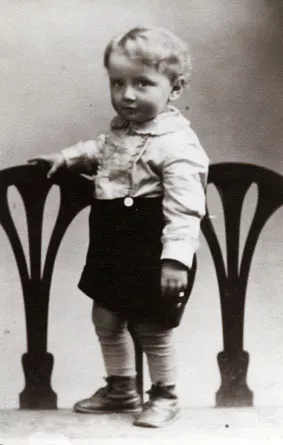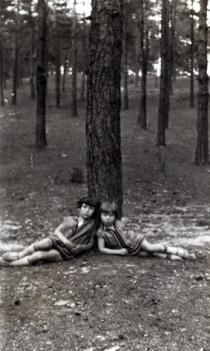Bronek Wydzegrod
This is a studio portrait of my aunt, Sala Borensztajn and her husband, Lajb Borensztajn.
This picture was taken in Lask in the 1920s. It survived the war due to a fortunate incident: before the war, my mother had mailed it to her sister, Ruth, who lived in the USA.
My mother’s family comes from Lodz. Mother’s name was Maria Biber. She was born on 25th March 1899 in Lodz. She had lots of siblings: three sisters and two brothers: Sala, Hela, Ruta, Leon and Motek.
There were six children altogether. I knew all my aunts, except Ruta, and uncles. My mother’s father died young and her mother died in 1919. The children were left on their own.
The oldest sister was already a married woman at that time. I don’t know her full name, we called her Auntie Sala. She lived in Lask. Her husband’s name was Lajb Borensztajn.
After Grandma’s death, she took the youngest sister, Hela, to live with her.
My two aunts lived in Lask. I spent many Spring breaks, I mean Easter breaks, at my older aunt’s place there. I would stay for two weeks each time.
I think once I went with Renata, but a few times I went on my own. My parents would put me on the train, and then my aunt, Sala, would pick me up in Lask. They lived right opposite her husband’s mother, at Tylna Street 9.
The seder table was always set and Uncle Leib’s mother came over and then supper would begin. My uncle read some things, or said some things.
After half an hour they would tell his mother she was old now and had better go lie down. As soon as she was gone, the seder was over. They only did the seder for her sake.
I don’t know whether they celebrated any other holidays. It was a small town and you could not really make it known to outsiders that you were not a believer.
I know that my uncle used to go to the synagogue on Fridays, I remember this, but I don’t know if they were religious.
Sala had a bedroom, a dining-room and a kitchen. There were two beds in the bedroom, on the left there was their son’s bed.


























